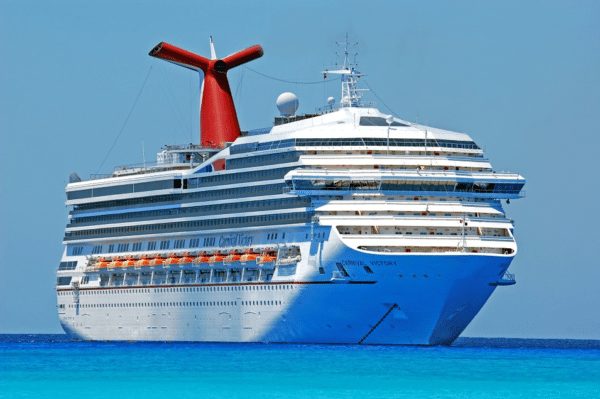In the travel business, especially when it comes to traveling the wide-open seas, the question that seems to crop up the most is “Are cruise ships safe?”
It’s one of the most common questions from cruise-ship travel veterans and first-timers alike. This is due to recent tragic occurrences such as fires aboard the Carnival Triumph and Royal Caribbean’s Grandeur of the Seas in 2013, as well as the Costa Concordia running aground in January 2012, which killed 32 people. The engine room fire on one of the ships left a 2,750 passenger ship adrift at seas for days.
After the fatal capsizing and the two, high-profile fires aboard ships, observers began wondering whether cruise ships were operating with minimal regulatory oversight. Of course, the seemingly endless news coverage of the incidents airing on major television outlets only served to add fuel to the fire and spawn skepticism about cruise-ship safety.
Also adding to the skepticism was the case in which hundreds of passengers contracted acute gastroenteritis while aboard a cruise ship.
To combat the negative publicity, last year two of the industry’s largest companies, Carnival and Royal Caribbean Cruise Lines hired retired military admirals to oversee their sea operations. In essence, safety became “Job #1,” which means cruise lines are largely adopting practices pioneered by the aviation industry, which has resulted in enormous improvements over the past three decades and made U.S. air travel the safest in the world.
After the Costa Concordia tragedy, the cruise-ship industry voluntarily adopted 10 safety policies that went beyond what governments required, according to a major industry group.
Budd Darr, senior vice president for technical and regulatory affairs at Cruise Lines International, which represents 95 percent of cruise traffic worldwide, told U.S. safety regulators that the industry couldn’t wait for formal government investigations to make changes.
“It’s not just a priority,” Darr told the National Transportation Safety Board of cruise safety. “It’s fundamental to what we do in operating our ships. They must be safe. They must be secure. People know they have to be able to have a safe and secure vacation experience to relax.”
Worldwide, 61 people have died from cruise-ship operations from 2002 through 2012, which includes 27 passengers, Darr said.
Darr’s comments came during a two-day NTSB forum on the industry. The board hasn’t held a hearing on the industry because incidents typically occur farther that U.S. territory within 12 miles of shore. The NTSB also doesn’t review health of criminal issues. But, the board, which investigates accidents involving all types of transportation, wanted to review cruise-industry safety because of recent engine-room fires aboard the Carnival Splendor in November 2010 and the Carnival Triumph in February 2013 and in the mooring area of Royal Caribbean’s Grandeur of the Seas in May 2013.
So, just how do people who enjoy cruises feel about the industry’s cruise-ship safety standards? Cruise Critic recently conducted a poll in which pertinent questions were posed to 1,700 participants.
The obvious first question was “Are cruise ships safe?” The answer of more than 1,700 who responded was…yes.
Another poll question asked, “In light of media coverage of recent events onboard cruise ships, would you consider it safer to vacation on a cruise ship or at an onshore resort? Admittedly, many CruiseCritic readers would be ever so slightly biased towards at-sea vacations. But, still, a whopping 87 percent would opt for cruise travel over resorts, while 12 percent would choose the land-based option.
Does the publicity about such tragic events scare you off from cruising? In this case, 76 percent said nope, no worries at all, while 23 percent admitted they’d still go, but might be more safety conscious in the near future. And just one percent said “I will not cruise.”
Finally, the poll wanted to know how cruise travelers felt about the safety issue being raised to national proportions as a result of congressional hearings. The poll question asked, Will the hearings achieve anything? Nineteen percent believed that mandated and regulated policies will lead to positive results. However, 46 percent felt the hearings were merely “opportunities for blowhard lawyers to pontificate and 35 percent expected nothing to come from the events.
Kevin Sheehan, CEO of Norwegian Cruise Line, also offered his insight on cruise-ship safety. “On behalf of the more than 20,000 officers, crew and shore-side members at Norwegian Cruise Line, I would like to reaffirm our commitment to safety, which has been an overriding cornerstone of Norwegian throughout our 47-year history. Stated simply, the safety of our guests and crew is, at all times, our number one priority.”
Continuing, he said, “We operate all of our vessels to meet or exceed the requirements of the Safety of Life at Sea (SOLAS) convention and the International Safety Management Code, as well as other international safety requirements which govern the cruise industry. The United States Coast Guard and similar international agencies along with international regulatory authorities conduct periodic inspections of our ships to ensure we are in compliance with these standards.”
“Our safety culture extends beyond the development and implementation of policies and procedures to take advantage of the latest in ship design and operational safety measures,” he added.
At a recent two-day forum conducted by the National Transportation Safety Board to review the cruise industry’s safety protocols in Washington, D.C., William Burke, chief maritime officer at Carnival, said “We certainly have had a wake-up call over the last couple of years. So, what I find is that people are really interested in getting better. And I find that across the board. Burke joined Carnival in December after 35 years in the U.S. Navy, retiring as a vice admiral.
A year after the Concordia disaster, the blaze aboard the Carnival Triumph demonstrated the inadequacy of some fire-suppression systems and led Carnival to embark on a $700 million program to upgrade its firefighting equipment and engine-room designs.
In a previous interview, Burke said, “The safety and security of our guests is our top priority. Our excellent record of safe operation throughout Carnival’s 40-plus year history and the comprehensive safety standards we continue to live up to every day, proves that commitment. Our ships operate in full compliance with, and in many cases exceed, all U.S. and international safety regulations. We do everything we possibly can to ensure a safe environment for our guests and crew members while maintaining our excellent record of safety.”
Continuing, Burke said, “One concept in the safety regimen is called boat operations quality assurance, a system adopted from the flight operations’ protocol most airlines now use to oversee their flights. Another development borrowed from many airlines is a ‘no-blame’ reporting system, designed to allow cruise staff to identify deviations from protocols without fear of retaliation.”
For more information, updates, travel tips and news from Sundance Vacations, be sure to follow us on the following social media outlets:
- Sundance Vacations Facebook
- Sundance Vacations Twitter
- Sundance Vacations Instagram
- Sundance Vacations YouTube

